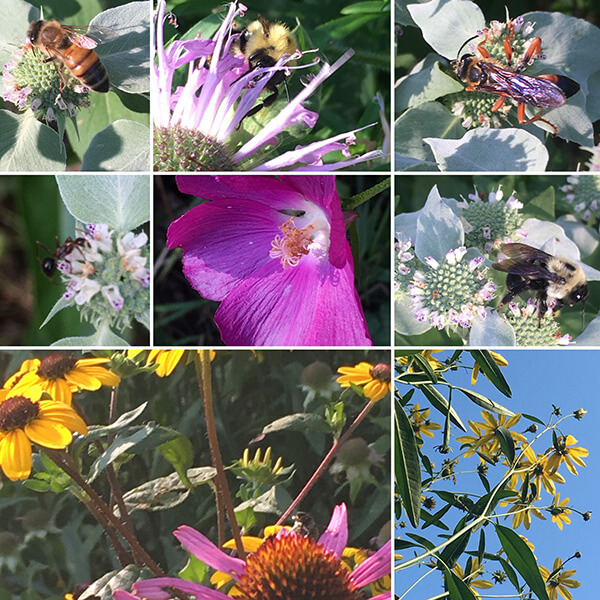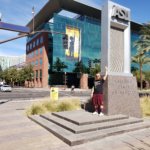Sustainability and the Environment
What is Antioch College’s Sustainability and the Environment focus?
The Sustainability and the Environment focus at Antioch equips students to understand the causes and effects of social and ecological crises and regeneration; to think critically about environmental ethics and justice; to trace power and unevenness across social, economic, and political lines; to imagine better worlds and to nurture human and environmental resilience.
Who Would Study Sustainability and the Environment at Antioch College?
Students who have graduated with this focus have worked in: entry-level environmental science, land management, environmental reporting, and other areas. Other students have entered graduate programs in Ecology, Environmental Science, Natural Resource Management and more.
What Courses can you Study at Antioch College with a Focus on Sustainability and the Environment?
Humanities
- LIT 130 Literature and Social Justice
- PHIL 115 Eastern Thought
- PHIL 221 Environmental Ethics & Political Theory
- PHIL 290 Indian and Buddhist Philosophies
Sciences
- BIO 210 Botany
- BIO 240 Zoology
- BIO 340 Evolutionary Biology
- CHEM 220 Environmental Chemistry
- ENVS 105 Introduction to Environmental Sciences
- ENVS 220 Aquatic Biology
- ENVS 230 Soil Science
- ENVS 305 Ecology
- ENVS 330 Conservation Biology
- ENVS 339 Ecological Agriculture
Social Sciences
- ANTH 380 Inside Out: Race, Gender & Citizenship
- PECO 110 Principles of Economics
- PECO 260 Political Economy of Technology
- PECO 315 Environmental Economics
- PECO 320 Labor Economics
- PECO 330 Political Economy of Race and Gender
- PECO 350 Public Policy
Additional Offerings
- EXPR 140 The Antioch Harvest: Seed-saving, Canning, Fermenting, and Preserving
- EXPR 240 Food, Farming and Resilience: Integrative Learning on the Antioch Farm
- EXPR 241 Reskilling, Sustainability and Community
- EXPR 242 Resilience in the Anthropocene
- EXPR 340 The Antioch Apothecary: Teas and Tinctures, Syrups and Salves
- EXPR 341 Seed Sovereignty and Citizen Action
- FARM 210 Community Food Projects
Example of self-designed major in sustainability
Environmental Philosophy, Ecological Resiliency, and Practicable Sustainability
Cooperative Education Field Placements
In the past, students have participated in Co-ops around the country and abroad. Here are a few examples:
- Antioch Farm, an on campus farm providing a space for learning about sustainable, ecological agriculture while also providing the college with fresh, organically grown produce
- Agraria, Community Solutions, a Yellow Springs-based nonprofit committed to educating people about ways to make their communities more self-reliant and resilient
- Heartbeat Learning Gardens, a non-profit, small scale, sustainable farm working to provide education on sustainable farming and simple living
- Un Arbol Para Mi Vereda (A Tree for My Sidewalk), a non-profit organization with a mission to plant more trees in the City of Buenos Aires and the surrounding area
- City of Dayton’s Division of Water Supply and Treatment, which is responsible for maintaining and operating well fields, water treatment plants, pumping stations, and water storage facilities that provide water to most of the residents in Montgomery County
Learning Resources
Recent News

Earth Day 2022 Message from Dr. Kim Landsbergen
As we celebrate Earth Day 2022 on our “Pale Blue Dot”, as Carl Sagan would say, it is a time to reflect on many of the environmental challenges happening in our state, country, and across the world. The two most dramatic and dangerous challenges that are foremost in...
DEEP KRITIK with Dr. NATALIE SUZELIS, Assistant Professor of Literature
Richard Hauck ’17 Accepted to Two Master’s Programs
After graduating with a self-designed major in Bachelor of Science: Ecology and the Human Environment with Spanish Language focus and earning magna cum laude, Richard Hauck ’17 has been accepted into two master’s programs at Arizona State University.
Explorations Through Co-op: Jen Ruud ’18
Although Jen Ruud ’18 majored in Environmental Science at Antioch, their Co-ops provided opportunities for exploration in different fields.















